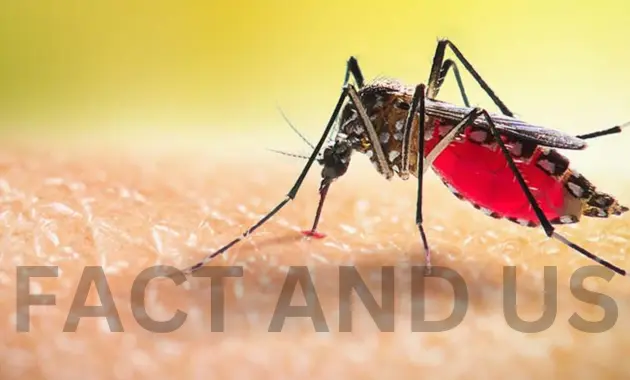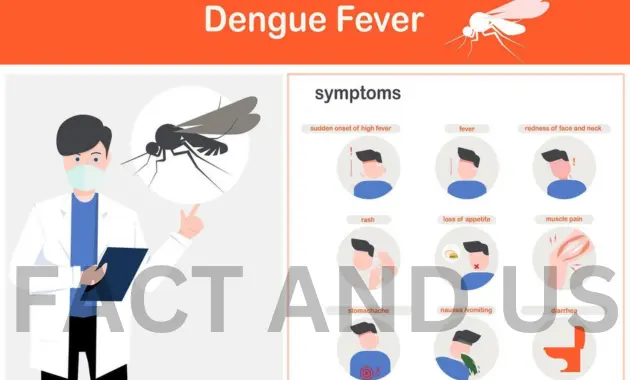Dengue infection can increase the level of D-dimer in the blood and result in body aches, severe chest pain, high fever, trouble breathing, and a change in the skin color of hands or feet. Fibrinogen test: This test is done to check the level of fibrinogen. Dengue fever is a painful, debilitating mosquito-borne disease, and people who become infected with the dengue virus a second time have a much higher risk of developing serious disease. Symptoms of dengue fever include high fever, body rash, headache, and muscle and joint pain. Some severe cases cause bleeding and shock, which can be life-threatening.
Contents
Dengue Fever

The dengue virus is transmitted to humans through the bites of infected female mosquitoes, primarily the Aedes aegypti mosquito. Other species within the Aedes genus can also act as vectors, but their contribution is normally secondary to Aedes aegypti. Dengue fever is caused by any of four closely related dengue viruses. These viruses are related to the viruses that cause West Nile infection and yellow fever. You can’t get dengue fever by being around an infected person; instead, dengue fever is spread through mosquito bites. When an infected mosquito bites another person, the virus enters that person’s bloodstream and causes infection.
After you recover from dengue fever, you have long-term immunity to the virus that infected you—but not to the other three dengue fever virus types. This means you can get infected again by any of the other three virus types in the future. If you get dengue fever for the second, third, or fourth time, the risk of developing severe dengue fever increases.
What are 7 warning signs of dengue?

Warning Signs*
(1) Abdominal pain or tenderness.
(2) Persistent vomiting.
(3) Finical fluid accumulation.
(4) Mucosal bleed.
(5) Lethargy or restlessness.
(6) Liver enlargement > 2 cm.
(7) Laboratory finding of increasing HCT concurrent with rapid decrease in platelet count.
What are the 4 types of dengue fever?
It is caused by the ‘Dengue’ virus, which has four different types. (Type 1,2,3,4). In common language, this disease is called ‘break bone fever‘ because it causes a lot of pain in the body and joints.
causes of dengue fever
Symptoms of Dengue fever
Symptoms of dengue fever, which usually begin four to six days after infection and last up to 10 days, may include:
(1) Sudden high fever (105 degrees)
(2)severe headache
(3) Pain behind the eyes
(4) severe joint and muscle pain
(5)Tiredness
(6)nausea
(7)vomiting
(8)having diarrhea
(9) Skin rash, which appears two to five days after the fever begins
(10) Minor bleeding (such as nosebleeds, bleeding gums, or simple bruising)
Treatment of dengue fever
There is no specific treatment for dengue. The focus is on treating pain symptoms. Most cases of dengue fever can be treated at home with pain medicine. Acetaminophen (paracetamol) is often used to control pain. Dengue (break-bone fever) is a viral infection that spreads from mosquitoes to people. It is more common in tropical and subtropical climates. Most people who get dengue will not have symptoms. But for those who do, the most common symptoms are high fever, headache, body aches, nausea, and rash. Most will get better in 1–2 weeks. Some people develop severe dengue and need care in a hospital.
In severe cases, dengue can be fatal.
You can lower your risk of dengue by avoiding mosquito bites, especially during the day.
Dengue is treated with pain medicine, as there is no specific treatment currently.
If you start feeling uncomfortable in the first 24 hours after the fever subsides, you should immediately go to the hospital to be checked for dengue fever complications.
How to prevent dengue fever?
The best way to prevent dengue fever is to avoid bites from infected mosquitoes. To protect yourself:
(1) Use mosquito nets, even indoors.
(2) When outside, wear long pants, a long-sleeved shirt, and socks.
(3) Indoors, use air conditioning, if available.
(4) Make sure window and door screens are secure and free of holes. If the sleeping area is not (5)screened or air-conditioned, use a mosquito net.
(6) If you have dengue symptoms, talk to your doctor.
(7) To reduce mosquito populations, get rid of areas where mosquitoes can breed. Regularly change the water in outdoor bird baths and pet water dishes, emptying stagnant water from buckets.
If someone in your household gets dengue fever, be especially vigilant about efforts to protect yourself and other family members from mosquitoes. Mosquitoes that bite an infected family member can spread the infection to others in your household.
Stay connected with FACT AND US for more such news.
